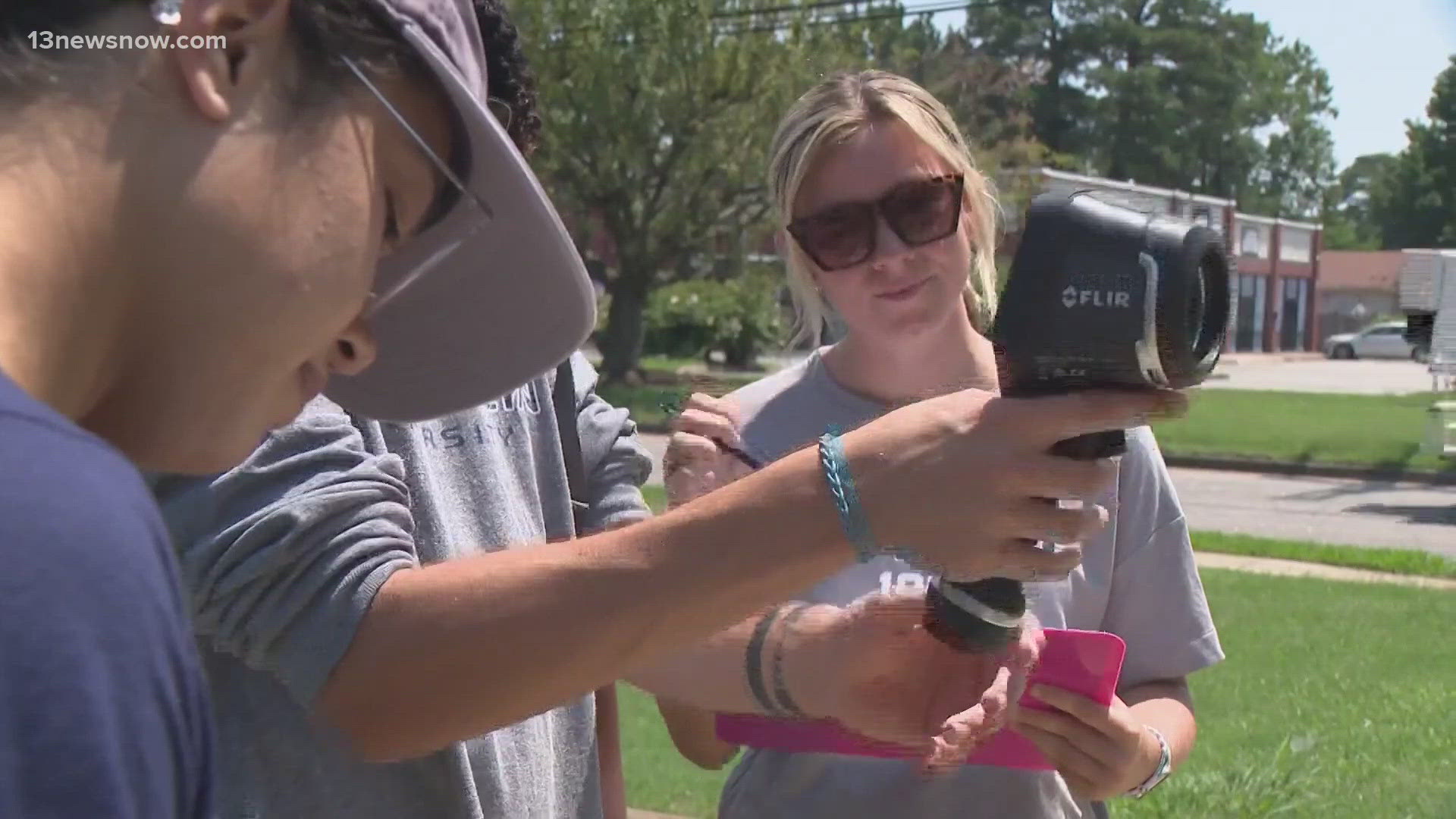PORTSMOUTH, Va. — While most people are trying to get away from the excessive heat, a couple of Virginia Wesleyan University students and volunteers are racing toward it.
These students working on a project called "Cool Down P-Town," and it is meant to scientifically beat the heat in Portsmouth.
"We have volunteers drive six different routes; those routes are in different parts of Portsmouth that will pretty much summarize the entirety of Portsmouth once the map is put together," said Faith Bush, a graduate student with VWU.
Bush said the goal is to identify "heat islands" in Portsmouth. Equipped with heat sensors and cameras, students and volunteers are driving across the city for almost an hour to record temperatures during certain parts of the day.
Researchers will then take these results and come up with an action plan to present to city leaders on ways to mitigate the heat.
Portsmouth Mayor Shannon Glover has already signaled his support for the project.
"One hundred percent, I think that any time you can bring actionable information that can improve the quality of life for our citizens, we should be doing that," said Glover. "I'm looking forward to what these students come up with."
It's not the first time research has been done to find ways to reduce heat across the Commonwealth.
According to a study done in Richmond, researchers found that historically red-lined and low-income neighborhoods are subjected to extreme heat in disproportionate amounts.
"A lot of people don't realize that heat is so dangerous and actually if you look at the last 30 years and extreme weather events that have had the most fatalities," said Elizabeth Malcolm, a professor with VWU. "It is actually extreme heat that hurts more people, more than hurricanes, floods, or tornadoes."
Students with VWU say preliminary findings show more green spaces and trees provide more relief from heat factors than concrete, which reflects the heat back up.
After compiling the data, researchers said they will develop a comprehensive action plan to reduce rising temperatures, including pavement removal and tree and scrub planting.
A $222,000 grant from the Virginia Department of Forestry gave Virginia Wesleyan University the money to fund this project. The entire project is expected to last two years.

